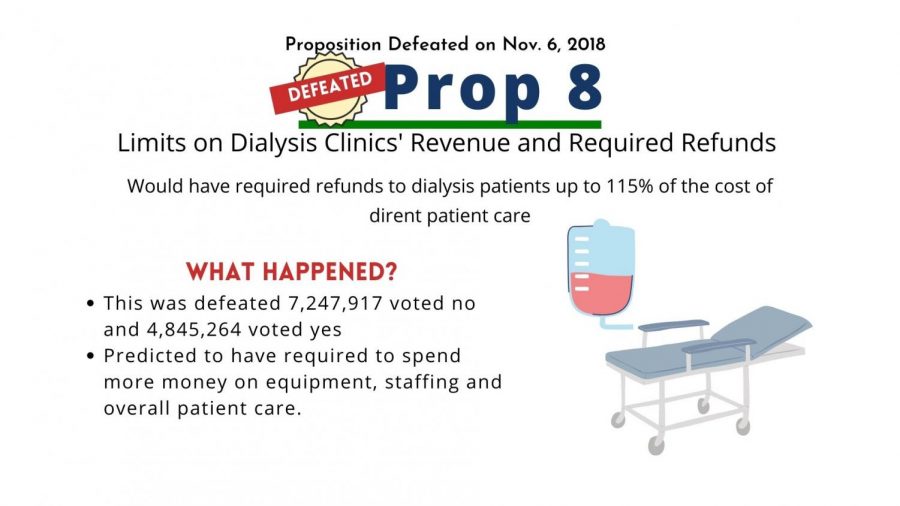Prop 8: Limits on dialysis clinics’ revenue initiative
Prop 8 called for dialysis clinics’ limiting revenue and requiring refunds for patients.
November 1, 2020
What it does
Proposition 8, the ballot proposition defeated on November 6th, 2018, sought for dialysis clinics to pay back dialysis patients for revenue that exceeded the 115% limit during patient care and also to improve health care.
Pros
Supporters of the passing of Prop 8 argue that clinic workers overcharge dialysis patients. Voting YES on the Prop would have ensured that dialysis companies spend more money on patient care and for those companies to hire more staff to aid their patients.
Los Angeles resident Tangi Foster, who’s for the passing of Prop 8 on ballotpedia, said “she’s visited multiple dialysis clinics over the last decade and that employees seem overwhelmed and exhausted. She says this makes her feel unsafe.” She does not believe that it is fair for the workers to carry this workload because we are relying on them to save our lives.
Voting YES on Prop 8 will increase the amount of staff at these clinics making the workload less heavy and making sure everyone is accounted for and safe.
Cons
Opposers to the passing of Prop 8 argue that many clinics would struggle to stay afloat with the extra taxes. If clinics had to pay more money to the patients and insurances, the opposers believe it is unfair to charge these businesses who are trying to stay afloat and keep their jobs.
Phillip Bautista, president of the American Nurses Association\California, states in the official argument in opposition to Prop 8 on ballotpedia that “Prop 8 dangerously reduces access to care and places vulnerable patients at serious risk.”
Voting results
The election results of Prop 8 was that it was voted against and did not pass. 59% of the voters voted NO and 40% of the voters voted YES. The main reason for the prop not passing was the people not wanting to see these clinics go down under. Also with the passing there would be a spark crisis of patients in need of a dialysis grow.




